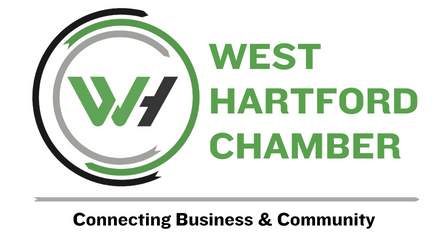Turn Small Talk Into Big Opportunity
.jpg)
Let’s be real. Elevator pitches can feel like a late-night infomercial–a robotic recitation of what your business does with an added exclamation point at the end. But for business owners and sales professionals, every interaction is an opportunity. A truly effective elevator pitch transcends mere information delivery.
It's about forging genuine connections that can blossom into leads, partnerships, and lasting relationships. It's about making those precious few seconds count, not just for what you say, but for how you make the other person feel
.jpg)
What most people get wrong in their elevator pitch is that they make it sound like a commercial and all about them, when it should be about your audience.
Forget the rigid templates and the pressure to cram every detail into a thirty-second spiel. This isn’t about broadcasting; it’s about initiating a conversation. The key lies in shifting your focus from simply explaining your business to creating a spark of interest and establishing a human connection.
If you take nothing else from this article know that:
The pitch must ignite interest
The Psychology of Connection in Brief Interactions
Humans are wired for connection. Even in brief encounters, we subconsciously seek common ground, shared values, and genuine interest.
Your elevator pitch should tap into this innate desire. Instead of launching into a list of features and benefits, start with a relatable problem you solve or a shared passion that drives your business.
Think about your ideal client or contact. What are their pain points? What are their aspirations? Craft an opening that acknowledges their world and subtly positions your business as a potential solution or a valuable resource. This approach immediately makes the interaction less transactional and more empathetic.
Storytelling Elements That Resonate
While quick is crucial, weaving in a concise narrative “elevates” your pitch. Instead of saying, “We offer marketing solutions,” try something like, “I help small business owners who are overwhelmed by social media finally find a consistent way to connect with their customers and grow their brand. I saw my own sister struggle with this, and that’s why I started [Business Name].” This personal touch and the hint of a story make your pitch more memorable and relatable.
Focus on the why behind your business. What motivates you? What impact do you hope to make? Sharing a sliver of your passion can create an emotional resonance that facts and figures alone can't achieve.
Tailoring Pitches to Different Personality Types
Not everyone responds to the same approach. Observe the person you're speaking with. Are they direct and results-oriented? Focus on the tangible benefits and your track record. Are they more relationship-focused? Emphasize collaboration and shared values.
Having a few variations of your pitch allows you to adapt to different personalities and contexts. Practice delivering each version so it feels natural and authentic, rather than forced.
The Importance of Active Listening Post Delivery
Your elevator pitch isn't a monologue; it's the opening line of a potential dialogue. Pay close attention to the other person's reaction. Are they asking questions? Are they nodding in understanding? Are they looking over your shoulder to be bailed out of the conversation the moment they see someone they know? Use their cues to guide the conversation.
Be prepared to elaborate on specific points that pique their interest. This shows you're genuinely engaged and interested in their needs, not just delivering a pre-rehearsed script. A thoughtful question in return can further deepen the connection and open doors for future interaction.
Ultimately, a successful elevator pitch is less about perfection and more about authenticity. It's about conveying your passion, highlighting your value, and making a genuine connection in a short amount of time. By focusing on building rapport and leaving a lasting impression, you transform a brief encounter into a potential steppingstone for long-term growth and meaningful relationships.
So, ditch the robotic recitation and embrace the art of the connection – and your pitch will get you all the way to the top floor.
Christina Metcalf is a writer and women’s speaker who believes in the power of story. She works with small businesses, chambers of commerce, and business professionals who want to make an impression and grow a loyal customer/member base. She is the author of The Glinda Principle, rediscovering the magic within.
_______________________________________
Medium: @christinametcalf
Facebook: @tellyourstorygetemtalking
Instagram: @christinametcalfauthor
LinkedIn: @christinagsmith

